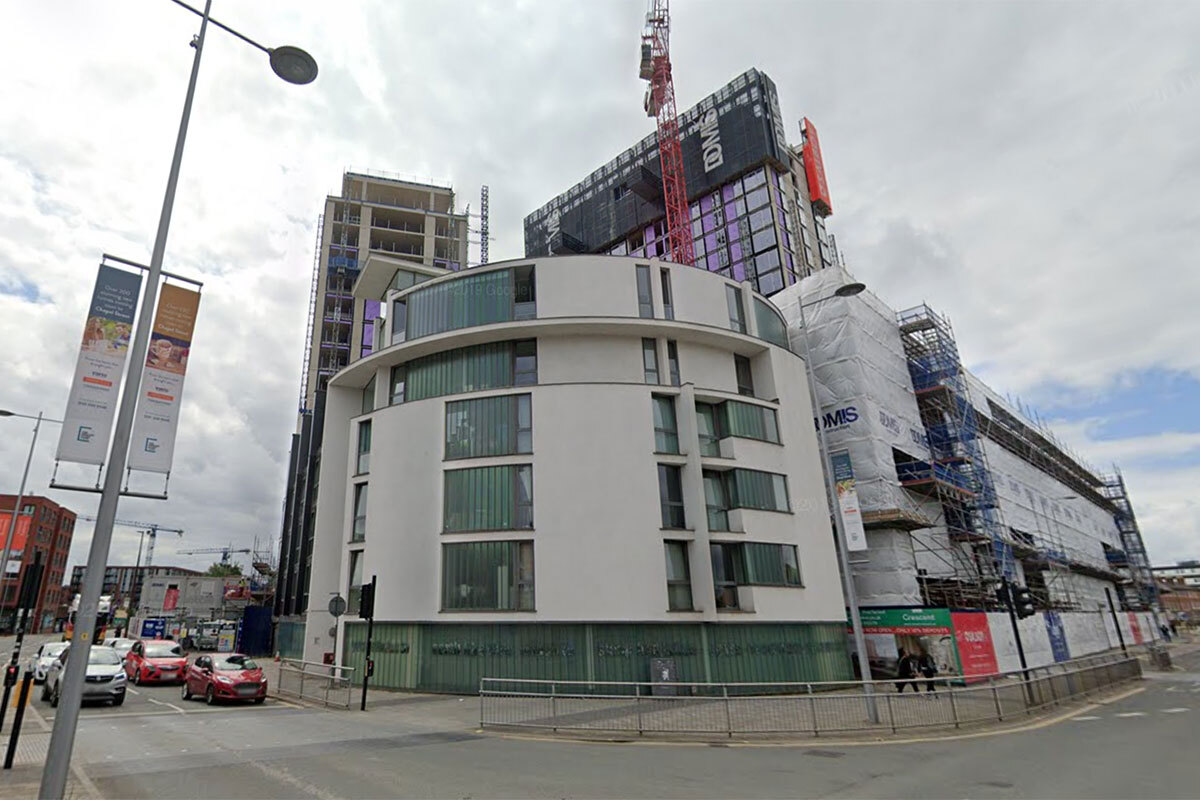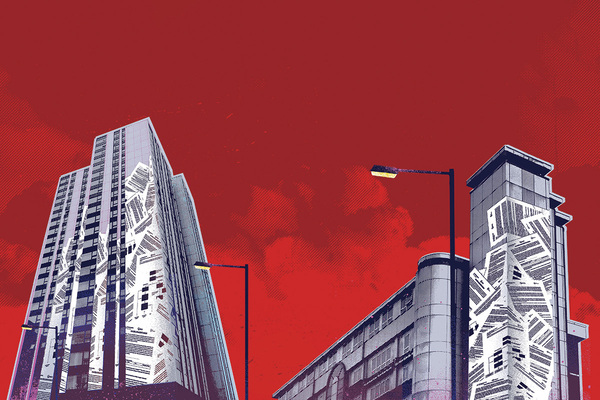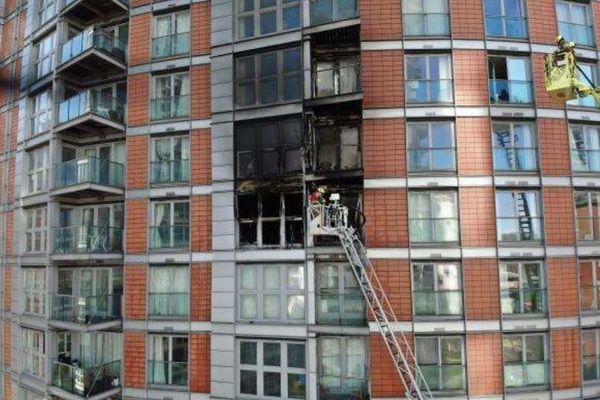Housing association set to to push £100,000 fire safety bill on to shared owners
A Manchester-based housing association looks set to pass on a £100,000 fire safety bill to leaseholders and shared owners living in one of its blocks in Salford.

Irwell Valley Homes has now informed residents of the 31-home Transport House block in Salford that it must carry out remedial work costing £3m to fix a litany of fire safety issues. All of which it said will have to be passed on to leaseholders due to the building being too small to qualify for the government’s £5bn Building Safety Fund.
A letter from the 16,000-home landlord sent to residents says the cost is likely to equate to around £101,500 per leaseholder and in many cases exceeds the costs some residents paid for their flats at the time of purchase several years ago.
The block is also home a number of shared owners who, despite owning as little as half of their home in some cases, will be liable for 100% of the costs of the remedial work.
The costs are set to include a staggering £97,000 bill, leaseholders were informed in a letter last week, to install missing cavity barriers and replace the combustible expanded polystyrene (EPS) material in the external wall of the building.
The remaining £4,500 covers the replacement of a timber walkway and a waking watch service that has been installed in the block.
Leaseholders have said bills of this scale would be unaffordable and that many are at a loss as to how they may cover it without government help.
A large proportion of leaseholders bought their homes in Transport House when it was first constructed in 2005. This was at a time when Irwell offered the apartments to key workers, such as nurses and teachers, who could not afford to get on the property ladder elsewhere.
Darren Matthews, who bought a 50% share of his flat in 2005 for £63,000, said he felt that by co-owning the property with a housing association would mean that he may be protected from high-cost things such as cladding removal.
However, shared ownership leases stipulate that shared owners must pay 100% of their service charge, which includes major work, even if they own as little as 25% of the home.
Inside Housing has spoken to other shared owners in the block who also own a portion of their home but were told they could be billed the full amount for the remedial work. They have said the letter has caused significant stress and damaged their mental health.
Mr Matthews, who has not staircased more than his 50% stake, said: “When the bill came in, my blood pressure went sky high, I went dizzy. This is far larger than any of us expected. I’m now thinking whether I might have to cash in my pension."
He added: "You often hear about or read about those poor people in extremely difficult situations, and think how terrible it is and ask ’how do they cope?’, well, I am actually one of those people now.
"I have to do my best to protect myself and protect my health."
Other leaseholders include Matthew Harris, a single father who bought his flat for £88,000 in 2012 after receiving some inheritance. He said the potential bill alone is nearly five times his yearly £22,500 salary as a lab assistant for the NHS.
Mr Harris, who has worked through the pandemic helping with the coronavirus testing process and lives four days a week in the flat with his daughter, told Inside Housing: “I’m a single parent, an NHS employee and I’m facing a £100,000 bill with no government support. We need help.”
Transport House is only 13.4m high, meaning it does not qualify for the government’s Building Safety Fund, which was set up to cover the cost of cladding removal for leaseholders living in buildings above 18m. Leaseholders and shared owners will be eligible for the government loan scheme that will see the costs paid upfront and leaseholders charged a maximum of £50 a month to pay off the loan.
Despite announcing the measure in February, there is still a lack of clarity as to how the loan system will work.
Giles Grover, from the Manchester Cladiators cladding campaign group, said these leaseholders are in an almost impossible situation as they face unpayable bills that could ruin their lives.
He said: “This is one of the highest fire safety bills we have seen for a building below 18m, and it is even more shocking when you consider that a number of the flats at Transport House are social housing, which is supposed to provide affordable homes for people on low incomes.
“It highlights the unbearable situations that leaseholders face up and down the country, particularly those in shared ownership flats who don’t even own all of their homes and now face costs higher than what they paid to take that first small step onto the property ladder.
“The government must get a grip of the building safety crisis before it is too late for the innocent people whose lives are being ripped apart.”
Transport House was built by developer Lovells in 2005 on the site of the former Transport and General Workers’ Union in Salford and is 700m away from the nearest fire station.
In a letter sent to residents, Irwell said that while cavity barriers are present in the external wall, the EPS material compromises the protection against fire in individual apartments, meaning without remedial works the building is “unsuitable and unsafe” and could be “open to rapid fire spread”.
It added that when the flats were originally sold, there were certain elements of the fire safety that were deemed acceptable and the building passed several layers of scrutiny, including building control and mortgage surveyors.
The landlord is currently installing a fire alarm system within the block, including heat sensors in each apartment. The work will cost £2,500 per apartment but IVH has said it will pay for the majority of this, requiring a £250 contribution from leaseholders.
IVH is one of a number of housing associations now looking to pass bills for remedial works on to leaseholders as the cost of building safety work across their stock increases. Inside Housing reported last year that 14 of the country’s biggest landlords expected to pay more than £1.2bn on fire safety in the in the next five years.
Claire Griffiths, executive director of growth, development and assets at Irwell, said: “The safety of residents is our number one priority. We work with Greater Manchester Fire and Rescue Service, accredited fire risk assessors and independent fire consultants and act on their advice to effectively manage fire safety.
“Responding to government guidance and the impending new building safety legislation and applying this to existing buildings is challenging and complex, and we sympathise with leaseholders across the country who are affected.
“At Transport House, we have explored many options. The only viable option that the independent fire engineers can support is replacing the render and fire cavity breaks, which involves a significant amount work.
“At the moment the government has only committed grant funding to support fire remediation works to buildings which are 18m and above – so Transport House does not qualify. This puts the leaseholders in an extremely difficult position and how they pay for the work required to their homes is a huge concern.
“The government has said that a low-cost loan scheme will be made available and we are waiting on the details to understand how this may help.
“We remain committed to supporting the leaseholders at Transport House and working together to try to find a solution that works for them and satisfies the required fire safety regulations.”
An MHCLG spokesperson said: “We understand many people are worried - that’s why we’re protecting those in buildings between 11m-18m from unaffordable costs by ensuring no leaseholder will ever pay more than £50 a month to remove unsafe cladding, as part of our new financing scheme.
“This is on top of the more than £5 billion to fully fund the replacement of unsafe cladding in highest risk buildings.
“It is the responsibility of buildings owners to make their buildings safe - and we will ensure that industry pays its fair share towards the costs of cladding remediation through a new levy and tax, striking the right balance in protecting leaseholders and being fair to taxpayers.”
Update (09/06/21): This story was updated to make it clear that residents had been told about the likely costs they would face in a letter, and have not been billed for the money
Sign up for our fire safety newsletter
Already have an account? Click here to manage your newsletters











